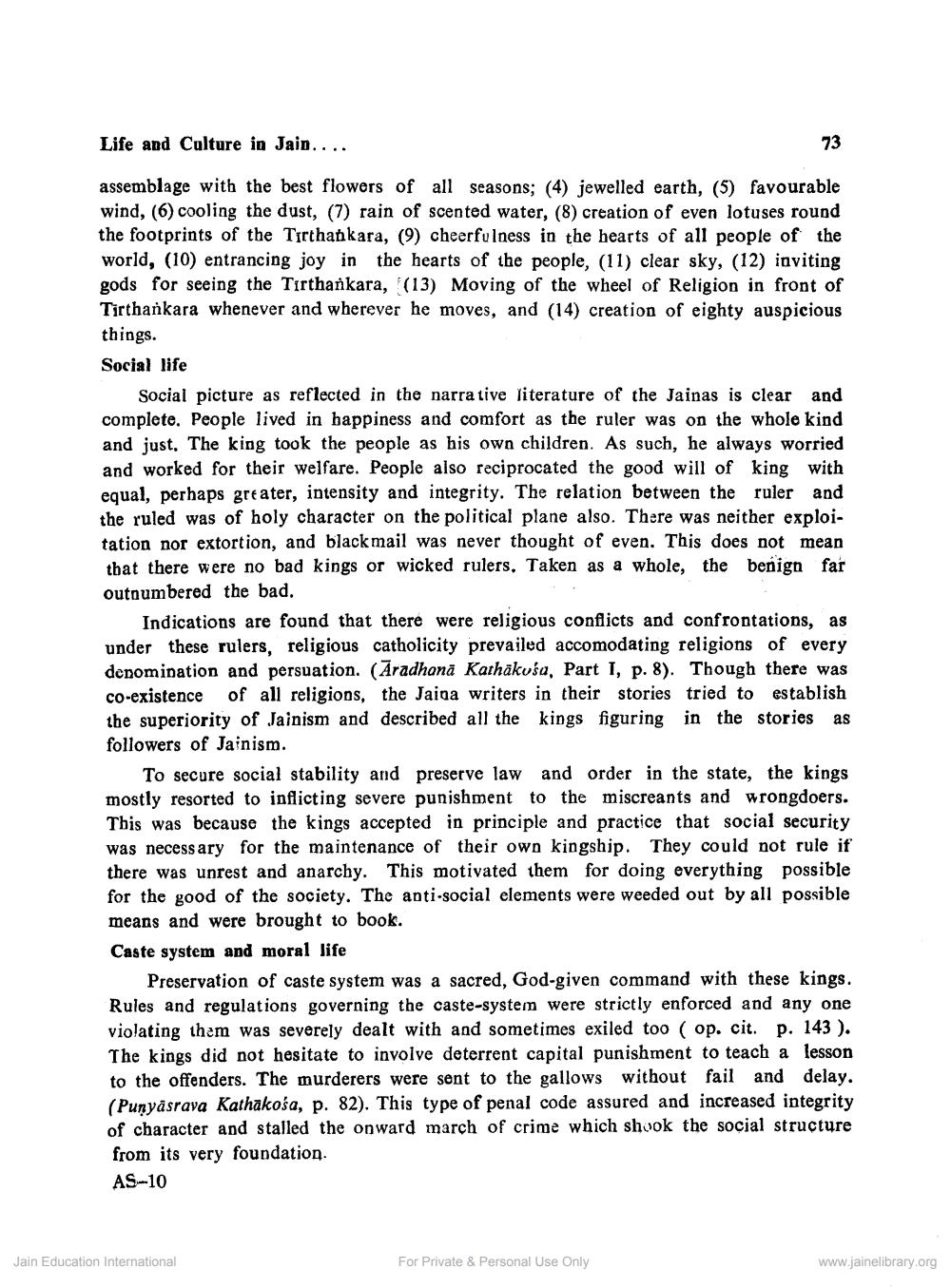________________
Life and Culture in Jain....
assemblage with the best flowers of all seasons; (4) jewelled earth, (5) favourable wind, (6) cooling the dust, (7) rain of scented water, (8) creation of even lotuses round the footprints of the Tirthankara, (9) cheerfulness in the hearts of all people of the world, (10) entrancing joy in the hearts of the people, (11) clear sky, (12) inviting gods for seeing the Tirthankara, (13) Moving of the wheel of Religion in front of Tirthankara whenever and wherever he moves, and (14) creation of eighty auspicious things.
Social life
73
Social picture as reflected in the narrative literature of the Jainas is clear and complete. People lived in happiness and comfort as the ruler was on the whole kind and just. The king took the people as his own children. As such, he always worried and worked for their welfare. People also reciprocated the good will of king with equal, perhaps greater, intensity and integrity. The relation between the ruler and the ruled was of holy character on the political plane also. There was neither exploitation nor extortion, and blackmail was never thought of even. This does not mean that there were no bad kings or wicked rulers. Taken as a whole, the benign far outnumbered the bad.
Indications are found that there were religious conflicts and confrontations, as under these rulers, religious catholicity prevailed accomodating religions of every denomination and persuation. (Aradhana Kathakula, Part I, p. 8). Though there was co-existence of all religions, the Jaina writers in their stories tried to establish the superiority of Jainism and described all the kings figuring in the stories followers of Jainism.
To secure social stability and preserve law and order in the state, the kings mostly resorted to inflicting severe punishment to the miscreants and wrongdoers. This was because the kings accepted in principle and practice that social security was necessary for the maintenance of their own kingship. They could not rule if there was unrest and anarchy. This motivated them for doing everything possible for the good of the society. The anti-social elements were weeded out by all possible means and were brought to book.
Caste system and moral life
Preservation of caste system was a sacred, God-given command with these kings. Rules and regulations governing the caste-system were strictly enforced and any one violating them was severely dealt with and sometimes exiled too (op. cit. p. 143). The kings did not hesitate to involve deterrent capital punishment to teach a lesson. to the offenders. The murderers were sent to the gallows without fail and delay. (Punyasrava Kathakola, p. 82). This type of penal code assured and increased integrity of character and stalled the onward march of crime which shook the social structure from its very foundation.
AS-10
Jain Education International
For Private & Personal Use Only
www.jainelibrary.org




